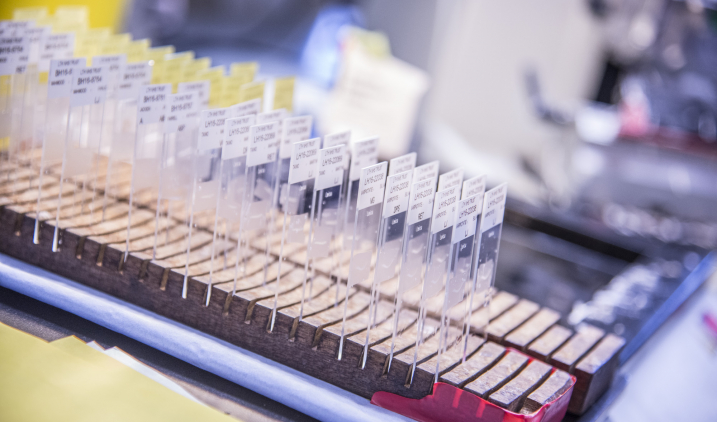Chemical pathology
Chemical pathology doctors combine laboratory and clinical skills, using biochemical laboratory tests to diagnose disease and manage patients.
You’ll have a detailed understanding of biochemical processes and changes that occur in disease, for example inherited metabolic disease (IMD), a genetic disorder that can lead to a dangerous imbalance of chemicals in the body and ultimately organ damage and disability.

Life as a doctor in chemical pathology
Your second role is clinical, working with patients with metabolic disturbances on wards or in outpatient clinics. You’ll work closely with GPs requesting tests and provide guidance to a wide range of hospital colleagues. You’ll also work very closely with endocrinologists to oversee specialist tests and help with the development and interpretation of hormone tests.
You will often be the only specialist of this kind in a district general hospital. You’ll need to be on-call sometimes, but there is less out-of-hours working in this speciality than in others.
How much can I earn?
How about the benefits?
- make a difference
- flexible and part-time working
- high income early in your career
- work anywhere in the world
- excellent pension scheme
- good holiday entitlement
- NHS discounts in shops and restaurants
Must-have skills
- excellent communication skills to manage a wide range of relationships with colleagues, and patients and their families
- emotional resilience, a calm temperament and the ability to work well under pressure
- teamwork and the capacity to lead multidisciplinary teams
- problem-solving and diagnostic skills
- outstanding organisational ability and effective decision-making skills
- first-class time and resource management for the benefit of patients
Entry requirements
If you already have a degree, you could study for a four-year postgraduate degree in medicine.
You’ll need to pass an interview and admissions test. You’ll be asked to show how you demonstrate the NHS values such as compassion and respect.
Some medical schools look to recruit a mix of students from different backgrounds and geographical areas, so your educational and economic background and family circumstances could be considered as part of your application.
"What I really love about chemical pathology is that the job involves an understanding of the patient’s metabolism which is then applied to the clinical biochemistry findings. I also love being involved in teaching and training future pathologists, other trainees and students."
What are my chances of starting a career in chemical pathology?
How to become a doctor in chemical pathology
After your foundation programme, you can apply for paid specialty training to become a doctor in chemical pathology, which will take a minimum of eight years.
You may be able to train part time, for example for health reasons or if you have family or caring responsibilities.
Where a career as a doctor in chemical pathology can take you
- specialise or conduct research in areas such as metabolic bone disease or inherited metabolic disease (IMD)
- teach medical students or postgraduate students in training
- get involved in research at universities, the NHS or private sector